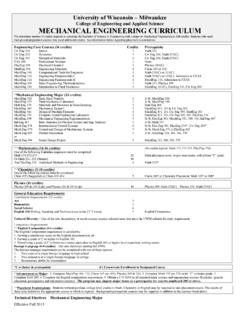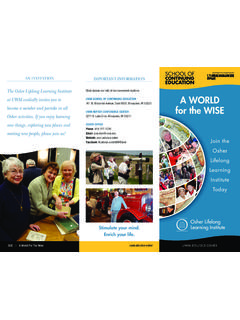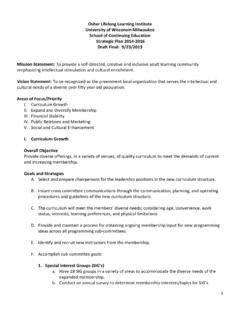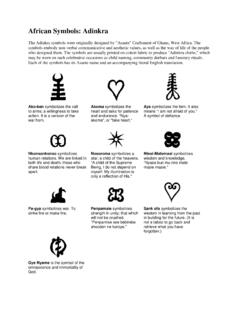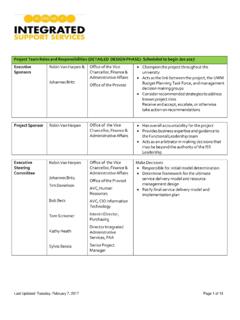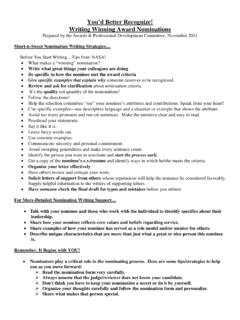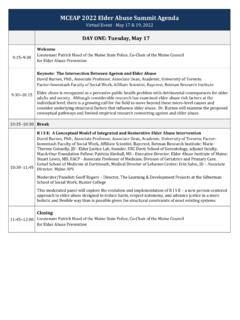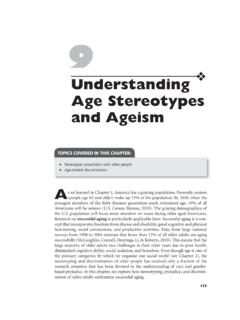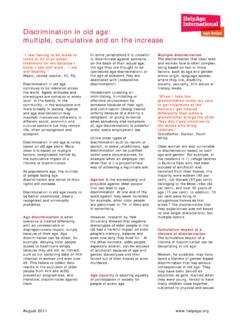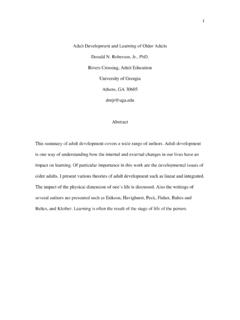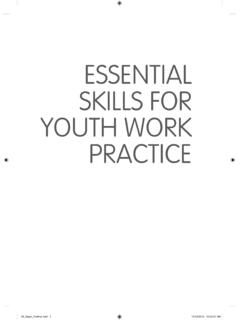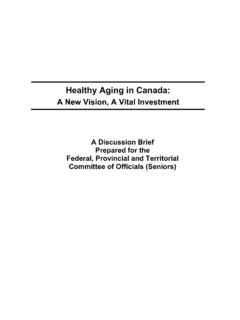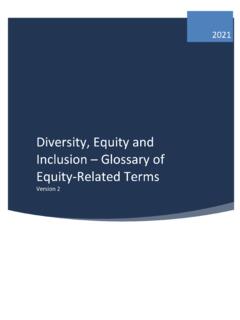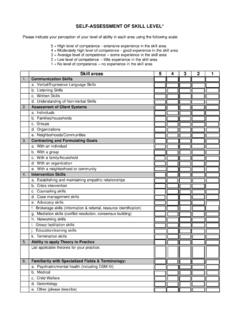Transcription of Written Paper on the Use of Self-Awareness in Social Work ...
1 10/13/2015 3:48:13 PM Written Paper on the Use of Self-Awareness in Social Work Practice Number of pages Double-Spaced Point Value 6 - 9 2 points 10+ 3 points The importance of Self-Awareness in Social Work practice is emphasized in Standard 2. Self-Awareness of the NASW Standards for Cultural Competence in Social Work Practice Social Workers shall develop an understanding of their own personal and cultural values and beliefs as a first step in appreciating the importance of multicultural identities in the lives of competence includes knowing and acknowledging how fears, ignorance, and the isms (racism, sexism, ethnocentrism, heterosexism, ageism, classism) have influenced their attitudes, beliefs, and feelings.
2 Social Work is a profession that is founded on the ability to cultivate positive relationships with people who may be very different from us. There may be differences in age, race, personality, gender, socioeconomic status, health, sexual orientation, rank, power, and privilege, as well as beliefs regarding religion and politics. The experience of these differences can cause a Social Worker to feel emotionally and cognitively disturbed. The ability to become aware of and consciously attend to these internal disturbances can positively affect the quality of relationship we are able to establish with the people we serve. The skill of Self-Awareness refers to the ability to recognize our own thoughts, beliefs, emotions, personality traits, personal values, habits, biases, strengths, weaknesses, and the psychological needs that drive our behaviors.
3 It includes the ability to recognize how we react to cues in the environment and how our emotions affect our way of relating to others. A compassionate cultivation of Self-Awareness is an essential skill vital to the professional growth and development of being a competent Social Worker. It requires dedication and commitment to an on-going practice of mindful non-judgmental attention to what is happening inside of us with our thoughts, emotions, and physical body sensations as we interact with others. Procedures for the Completion of This Field Assignment Completion of this Field Assignment requires a Written Paper on how Self-Awareness can effectively be used by the Social Work field student with a specific client of the current Field Agency.
4 In preparing this Paper , it can be helpful for the field student to keep a daily journal of one s Self-Awareness reflections in relationship to one client. This assignment should be double-spaced and completed in a narrative format. The following points can be considered in completion of this assignment: - 2 - Developing a Self-Awareness inventory of one s experiences in relationship to a specific client including: o Emotions o Thoughts o Physical body sensations o Beliefs regarding similarities and differences in: Race Culture Ethnicity Religion Age Health Socioeconomic status Political persuasion Sexual orientation Gender Rank Personal history including sexual abuse, physical and emotional abuse, domestic violence, criminal activity, substance abuse, previous parenting issues, adoption, issues of loss and grief, and mental illness Identify how these internal experiences influence one s behavior with the client.
5 Identify how these internal experiences: o Are easy to have. o Are disturbing and difficult to have. o Positively affect the cultivation of rapport and relationship development with the client. o Negatively affect the cultivation of rapport and relationship development with the client. Identify at least two specific interventions that can be used in a positive response to the disturbing experiences so that they do not negatively affect the cultivation of rapport and relationship development with the client. Identify one s personal values (such as Paying one s bills is very important. ) Describe how these personal values influence interactions with the client. Describe at least one intervention that can be used in a positive response to personal values that adversely affect relationship development with the client.
6 Identify one s personality traits (such as being extroverted or introverted) Describe how these personality traits influence interactions with the client. - 3 - Describe at least one intervention that can be used in a positive response to personality traits that adversely affect relationship development with the client. Identify what you consider your personal strengths. Describe how your personal strengths are an asset in relationship development with the client. Identify what you consider your personal weaknesses. Describe how your personal weaknesses can adversely affect relationship development with the client. Describe at least one intervention that can be used in a positive response to personal weaknesses that can adversely affect relationship development with the client.
7 Describe the benefits of the developing the skill of Self-Awareness as a Social Worker. Describe the risks of developing Self-Awareness in the practice of Social Work. Describe a plan for how you can continue developing your Social work Self-Awareness skills on a daily basis. References: Rothman, Juliet C., The Self-Awareness Workbook for Social Workers, Allyn and Bacon, 1999 (ISBN 0-205-29029-9). awareness of self -A Critical Tool, Esther Urdang, Social Work Education, Vol. 29, No. 5, August 2010, pp. 523 - 538 - 4.
